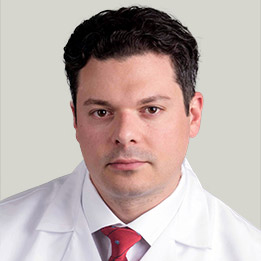How Orthodontists’ Communication Skills and Other Interpersonal Skills can Help Patients
 Life is too short to “settle” for anything—especially when it comes to finding a good orthodontist; do your research and ask a lot of questions. If the orthodontist puts you off, then look for one with whom you can be happy. When it comes to your child, Dr. Stosich says, “Credentials matter. Your child deserves the best.”
Life is too short to “settle” for anything—especially when it comes to finding a good orthodontist; do your research and ask a lot of questions. If the orthodontist puts you off, then look for one with whom you can be happy. When it comes to your child, Dr. Stosich says, “Credentials matter. Your child deserves the best.”
This is precisely how Dr. Michael Stosich feels. His orthodontic practice, Stosich Consulting, is in Kenilworth, Illinois, where his reputation is growing all around the North Shore area since opening his new office there. Dr. Stosich also has an office in the Grayslake area.
His reputation is quickly defining him as one who genuinely cares and listens to your problems and concerns because he values you as his patient. Dr. Stosich feels that it’s imperative to have an orthodontist who understands your needs. He feels the correlation between higher patient satisfaction scores and better overall health outcome depends on the relationship you have with your orthodontist.
You will only find this when your doctor is capable of good communication skills and empathy. It’s important that the doctor does not make you feel rushed or inferior because you are either asking too many questions or you are confused because you don’t know the questions to ask.
“You need to ask questions,” says Dr. Stosich. “When you leave the doctor’s office better educated about your problem, and the doctor has given you alternatives and equipped you with the skills to question treatment, you have found the right doctor,” says Dr. Stosich. If you can’t communicate with your doctor to let him know what your concerns are about orthodontic treatment and how it will affect your life, then chances are that you won’t be very happy during (or after) the process.
Dr. Stosich wants you to ask yourself certain questions when you are looking for a good orthodontist such as:
- What are his credentials
- Does he have good social skills
- Does he spend time listening to you
- Does he like to educate you and other patients
- Does he make you feel rushed
- Does he encourage you to ask questions
A doctor’s ability (or inability) to explain, listen, and empathize with your problems will have a profound impact on your care. You will feel more confident in his skills and level of expertise if he encourages you to learn and ask questions. Dr. Stosich will tell you to ask yourself if you felt comfortable with the doctor; ask him or her if they practice evidence-based orthodontics. He also says to take time to see through the haze of market-driven orthodontists or marketed orthodontics and make sure the orthodontist is appropriately credentialed.
“Remember, the consult appointment is about you vetting the orthodontist based upon recognizing his professional expertise,” says Dr. Stosich. He firmly believes that when you find a doctor with impeccable credentials who genuinely cares about your unique situation and communicates that to you, then you have found a good orthodontist.


